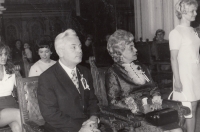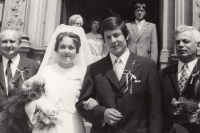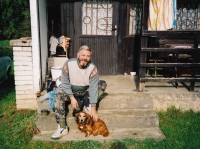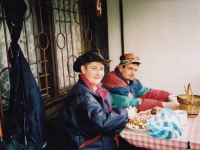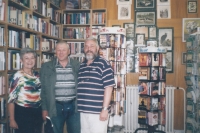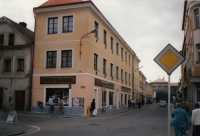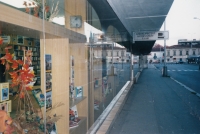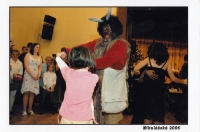In August 1969, he was beaten with a baton. Twenty years later, he got back at the communists

Download image
Petr Král was born on 22 October 1951 in Prague as one of three children together with his brother Mirek and sister Hana. He also had a brother, Karel, who was his mother’s child from her first marriage. His parents, who were both booksellers, divorced soon after his birth and he lived with his mother and siblings. Grandfather Josef Holeček worked as a builder in Persia (today’s Iran) during the years of World War II. In his childhood Petr was involved in sports, especially football. Between 1967 and 1970 he apprenticed in Prague as an antiquarian and bookseller. He lived through the days of social resistance against the arrival of the troops in August 1968 and the onset of normalisation. In August 1969 he experienced a clash between protesters and the People’s Militia. In 1970-1972 he completed his military service with the radio operators in Kolín. He was also deployed with the unit at the border bases in Hazlová and Milíře. In Kolín he met his wife Jindřiška Junová, whom he married in 1973. He had two children with her, a daughter Petra (1973) and a son Daniel (1978). He worked as a bookseller in various positions until his retirement. Since 1976 he has lived in Kolín, where he built a cooperative apartment with his own help. He changed several bookshops in Prague and Kolín. In 1989, he was a driving force behind the Velvet Revolution in Kolín, providing the window of the bookshop in the week immediately after 17 November for the display of contemporary leaflets and posters. After 1990 he privatised the U Zlaté kosy bookshop in Kolín and ran it as a family business, the Petr Král Bookshop and Antiquarian Bookshop. Since 2010 it has been part of the Kosmas company. Since the beginning of the 1990s, he was repeatedly elected to the Kolín City Council and served as a councillor of Kolín for several terms. He became a member of the active military reserves.
